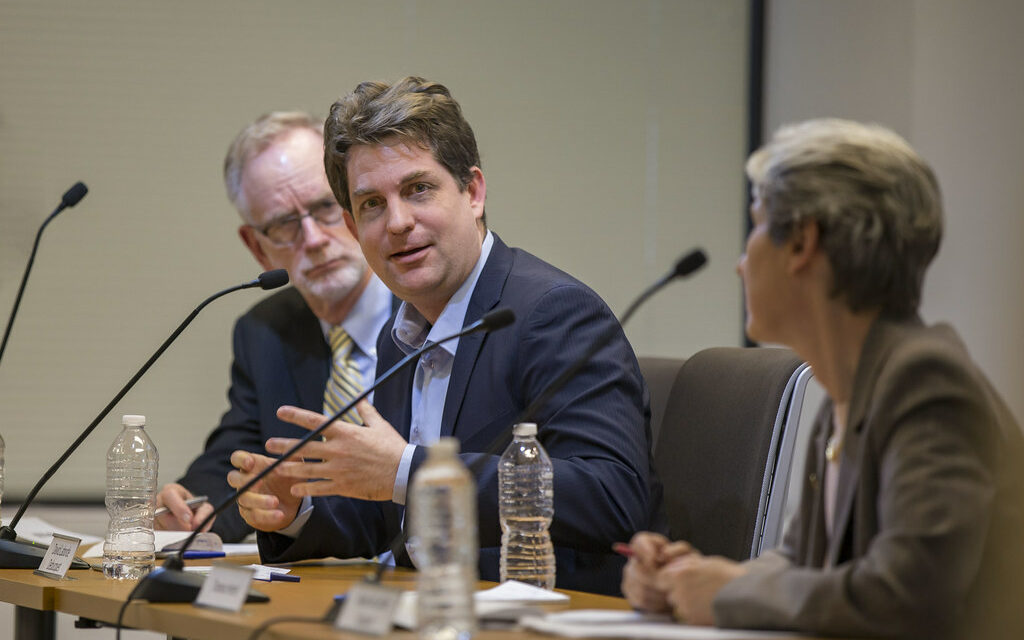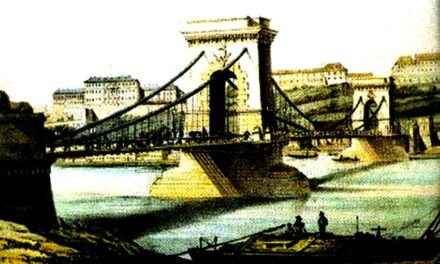In an interview with Neokohn , French economist David Laborde Debucquet talked about how the food crisis could affect Europe and why replacing Russian gas with liquefied gas is not a solution.
The interview was made at the MCC Budapest Summit on The Economic Consequences of the War conference.
***
How does the war in Ukraine affect the food crisis?
Even before the war, the food market was tight, meaning that supply was somewhat low while demand was high and food stocks were depleted. The two players in the war, Russia and Ukraine, are important players in the world market. With their sudden disappearance from the world market, or at least partially, the shortage became even greater and prices rose. That is why the price of wheat doubled in the few days after the invasion, because people started to worry. Then, a few weeks later, the situation partially settled, because on the one hand, exports continued despite the war, and on the other hand, other countries began to sow more wheat. Six months after the crisis, you can already see that farmers are adapting to the situation. However, this is only the food part of the crisis, and there is also the issue of energy.
This is where Russia exports a lot of energy, such as natural gas and fertilizers. It's more of a structural problem, it's about how you produce food and how you deliver it. The cost of production and delivery has increased significantly.
One of the often mentioned geographical areas that are sensitively affected by the crisis caused by the war is the Middle East. Why is this region so exposed?
The issue of food in the Middle East is a very sensitive topic because the countries there are not fully democratic and use food to control the population. "Bread and circus" is how they try to stabilize the population. Governments often intervene in the market with food subsidies. For example, in Egypt, bread was subsidized to a tenth of the market price. The government took control of half of wheat imports. Therefore, every time there is a price increase, people complain to the government. And the government tried to stabilize prices, but it cost a lot of money. Most of the countries in the region managed to stabilize prices (Lebanon is the exception), but the price was high, and the question is how long they can maintain it.
The problem is that the price is very volatile. It's enough if the weather is bad, or rockets are fired at Odessa, and people's panic drives the price up again.
And this is what makes the situation tense, because the capacity of governments to handle the situation will be less and less. In addition, governments in the Middle East set state prices for diesel and petroleum. In Egypt, for example, if only a small percentage of the population is affected by hunger or poverty, as we saw during the Arab Spring, this is enough for the situation to become unmanageable. After all, if we are talking about only 2-3% of the population, that is 3 million people.
There are two types of countries in the Middle East, there are oil and gas exporters, where due to high energy prices, the government can regroup money to stabilize food prices. Then there are the energy-importing countries like Lebanon, which still has the Syrian refugee crisis, a serious political crisis and is even on the brink of economic collapse.
Last year, everything was full of supply chain crises. How does this affect the current crisis? Has this problem been solved, or is it simply not written about anymore?
Yes, the papers often wrote as if global supply was the problem, but in reality, during Covid, it was much more local supply that was in crisis. During COVID, shipping millions of canned soybeans from Brazil to China, for example, was no real problem.
The real problem was what do you do when a significant percentage of people - for example, in Shanghai and China even in recent weeks - can't go to the store.
Another problem is the increase in the price of sea transportation. In Europe, for example, many companies whose shipping route passed through the Black Sea had to reroute their shipments. Citing the danger, the companies raised transport prices on the Black Sea.
With the redirection, you can say "a sea traffic jam has formed".
However, there is another problem, and this one is logistical. In this particular crisis, Europe has two big problems. First, Europe needs gas, and if it can't get it from Russia via pipeline, it tries to buy liquefied gas, which requires special transport ships.
There are not enough ships in the world to transport as much gas to Europe as we would like.
So the sea plug is even bigger. The other problem is that since there is not enough natural gas in Europe, we are forced to import the fertilizer that we have produced locally. And this means a lot of fertilizer, the problem with which is not that it is expensive, but that it takes up a lot of space.
Overall, lower production can probably be expected in Europe, which is not only due to fertilizers, but also to drought. But Europe is rich enough to get food from other places.
How much will the food crisis affect Europe?
Of course, it will affect you if you go into the store and already see that everything is more expensive. However, this is not entirely due to the crisis. If we look at the question of the price of bread, for example, only 15% of it depends on the price of wheat. Of course, we cannot say that Europeans are complaining about nothing, but their lives and health are not in danger. They can still choose to spend less on entertainment so that they can still buy as much food as before.
If you are really poor in a really poor country, half or even three quarters of your earnings go to food. So if everything doubles in price, it means you can't eat anymore.
Things are still very good here in Europe.
How do you think this crisis can be handled well?
If we look at past crises, we see that there is always an adjustment.
Twenty years ago, Ukraine and Russia were not even important exporters. After the collapse of the Soviet Union, they were forced to import food. So the world has been able to function without Ukraine and will be able to do so in the future.
But this probably means that even more forests will be cut down in Brazil, because, for example, we will import wheat from Brazil instead of Ukraine. Europe also needs to think about how much we can produce at home.
But I think the real challenge for Europe will be energy. In recent years, Europe has figured out how to reduce the use of nuclear energy and switch to renewable energies. However, this made it highly dependent on natural gas. That's what the politicians came up with, and it was a pretty bad idea. But we don't have to get stuck in that, we can start building nuclear power plants again.
But a change takes time, doesn't it?
It would take maybe 10 years. But if the war drags on, we will be forced to adapt. This is a wake-up call for Europe.
Featured Image: Flickr.com












